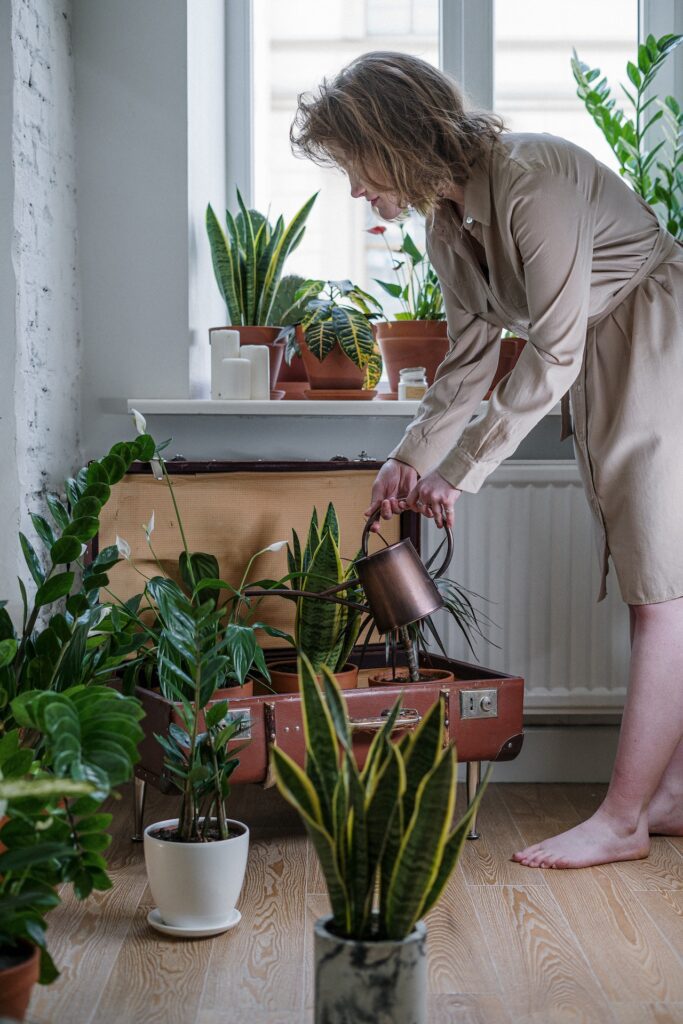There is no official definition when it comes to sustainable gardening. However, the idea behind the term is that sustainable gardening is all about minimising humans’ impact on the earth. Sustainable gardening practices that can be implemented in a domestic setting include avoiding using chemical fertilisers and pesticides, which can pollute the earth, preserving natural resources and, where possible, reducing waste.
For anyone looking to become more sustainable in growing plants, it isn’t necessary to make massive changes simultaneously. A simple shift towards sustainable planting is an excellent first step. An easy change like replacing your chemical weed killer with a natural method for killing weeds can significantly help the environment, to name one example. Here are just some ways in which you can grow plants sustainably.
Vertical planting
If you have a smaller space, then vertical planting is a fantastic way in which you can grow more whilst making use of what little space you have. Instead of planting out across your space, you plant upwards. This can be done in several different ways with a range of different vertical setups possible. Hanging baskets can be an excellent solution for several plants and even some types of vegetables, particularly herbs. A vertical wall garden is an excellent way of planting crops that need to grow upwards and where the crop needs to be kept off the ground. Beans and plants in the squash family grow very well this way.
Use a growth substrate.
Using a growth substrate such as Gelponics can significantly assist in being more sustainable with planting. Growth substrates are used in a wide range of agricultural settings and can help make sustainable farming on a global scale a more viable option. A substrate is a surface on which planting can take place and offer a root-growing environment where what is already in place will not nurture plants.
Go organic
Organic growing is an essential part of sustainable gardening. When you use fewer chemicals, you will not only save money but also become more ecologically sound. Organic growing is even more critical if you are growing food for your family. Build up the nutrients in your soil using natural compost. If you have plant diseases or insect pests in your garden, use an organic solution to treat them.
Add some mulch
Mulching is excellent for keeping weeds down, so particularly great if you are time-poor. It can also help to hold moisture in the soil. If you live in an area with water restrictions or have mainly sandy, dry soil, this is particularly important. Adding 2 to 3 inches of mulch to the top of your garden beds will help lock in the moisture. Consider pine needles, grass clippings, shredded bark, coir, or cocoa bean hulls for a sustainable planting solution for your mulch.
Install a rain butt
Using less water for your plants is an essential part of sustainability. In addition to mulch, consider planting things that don’t need as much water. A rain butt or barrel will allow you to collect and recycle rainwater to water your plants.
Consider composting
Many councils run schemes to encourage composting and can help by offering discounted prices on compost bins and water butts to help with sustainable planting in their area. Composting your green waste is one of the best and most straightforward, ways to partake in sustainable growing practices. Green waste can be turned into nutrient-rich sustainable compost.






